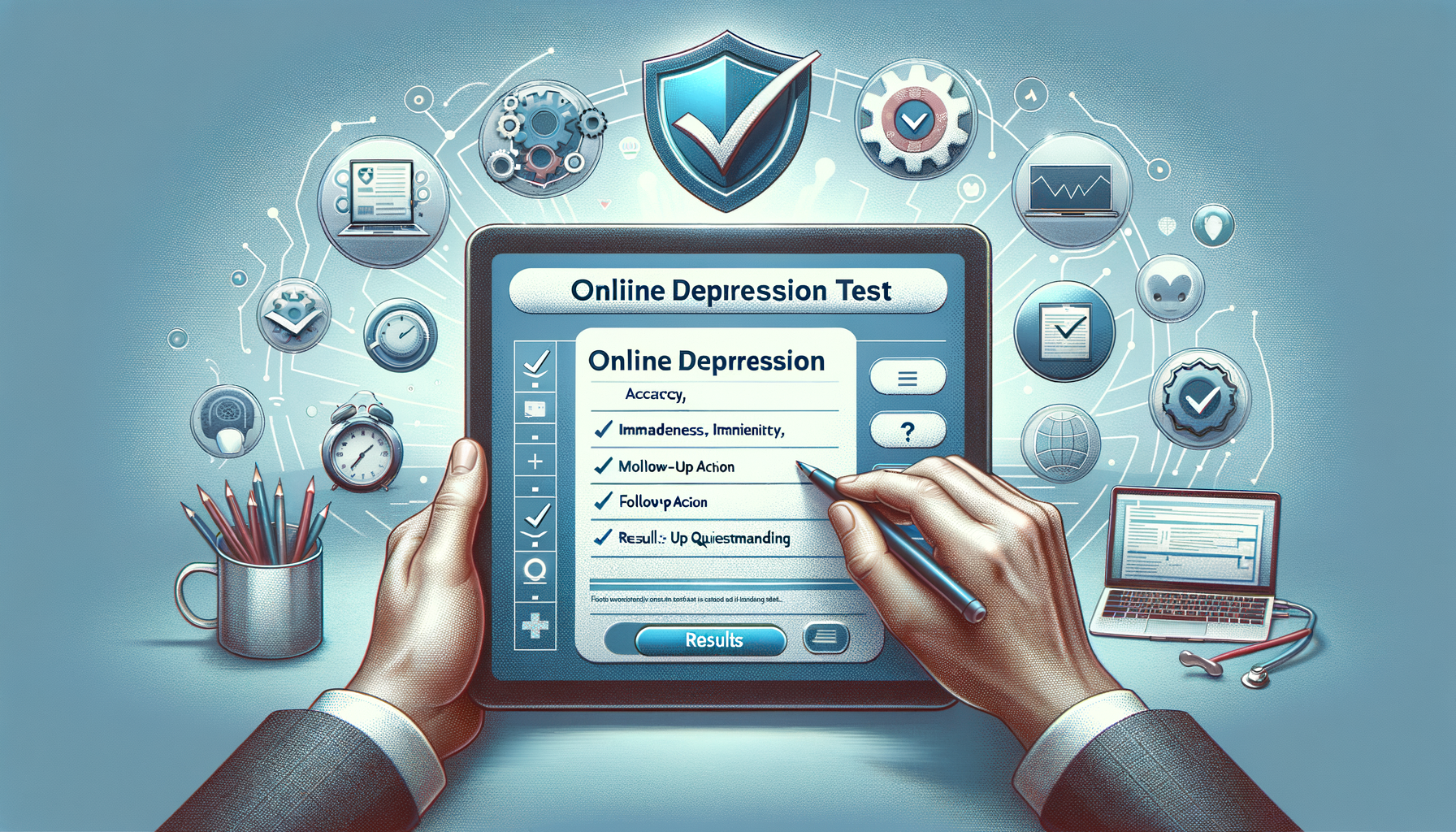Introduction to Online Depression Tests
In the digital age, the ease of accessing information has extended to mental health, with online depression tests becoming a popular tool for individuals seeking to understand their emotional well-being. These tests provide a private and immediate way to self-assess potential symptoms of depression. However, understanding the accuracy and limitations of these assessments is crucial. This article explores the accuracy of online depression tests, the immediacy of results, and the steps to take after completing a test.
Accuracy of Online Depression Tests
Online depression tests are designed to offer a preliminary evaluation of depressive symptoms. They typically consist of a series of questions based on established psychological criteria. However, the accuracy of these tests can vary significantly. Factors influencing accuracy include the test’s design, the source, and the individual’s understanding of the questions. While some tests are developed by mental health professionals and are grounded in scientific research, others may lack rigorous validation. It’s important to remember that these tests are not diagnostic tools but rather indicators that suggest whether a professional consultation might be beneficial.
One key aspect to consider is the test’s ability to capture the complexity of depression, which can manifest differently in each person. Symptoms such as mood changes, fatigue, and changes in appetite or sleep patterns are common, but their intensity and combination can vary. Thus, while online tests can provide insights, they should not replace professional evaluation. Users should approach these tests with a critical mind, understanding that they are a starting point rather than a definitive answer.
Immediate Results from Free Online Depression Tests
One of the appealing aspects of online depression tests is the immediacy of results. After answering a series of questions, users typically receive feedback within moments. This quick turnaround can be both beneficial and misleading. Immediate results offer a snapshot of one’s current state, which can be helpful for those seeking quick insights into their mental health. However, the instant nature of these results may lead users to overestimate their accuracy and reliability.
It’s essential to interpret these results with caution. The feedback often categorizes symptoms into levels of severity, such as mild, moderate, or severe. While this can provide a useful framework for understanding one’s mental health, it should not be viewed as a diagnosis. Users should consider these results as a prompt to reflect on their well-being and, if necessary, seek further evaluation from a mental health professional.
What to Do After Taking an Online Depression Test
After completing an online depression test, the next steps are crucial. If the results indicate potential depressive symptoms, it’s important to take action rather than dismiss the findings. Here are a few recommended steps:
- Reflect on the Results: Consider how the results align with your feelings and experiences. Reflecting on your emotional state can provide valuable insights.
- Seek Professional Help: If the test suggests moderate to severe symptoms, consider consulting with a mental health professional. They can provide a comprehensive assessment and discuss potential treatment options.
- Monitor Your Symptoms: Keep track of any changes in your mood or behavior. This information can be useful for both self-awareness and when discussing your mental health with a professional.
- Engage in Self-Care: Incorporate activities that promote well-being, such as exercise, meditation, or socializing with supportive friends and family.
Taking these steps not only fosters mental health awareness but also encourages proactive management of one’s emotional well-being.
Conclusion: Navigating the Path Forward
Online depression tests can be a valuable tool for initiating self-reflection and awareness regarding mental health. However, their accuracy and immediate results should be interpreted with caution. They serve as a preliminary step in understanding one’s mental state and should be followed by professional consultation if necessary. By taking informed actions post-test, individuals can better navigate their mental health journey, ensuring they receive the support and guidance needed to improve their well-being.

Leave a Reply